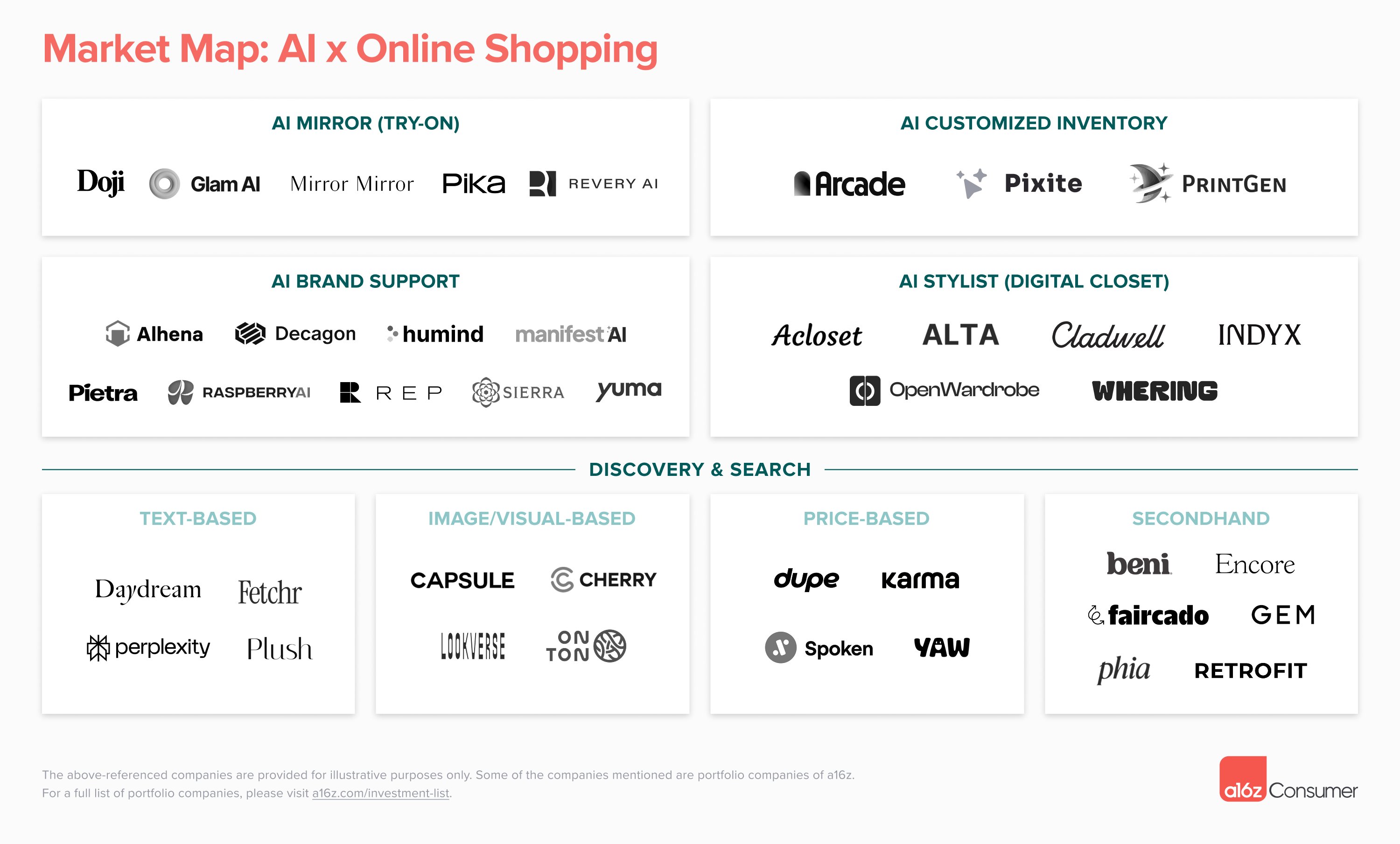AI Shopping Assistant: The Future of E-commerce
Posted on March 30, 2025
AI Redefines Online Shopping
A recent a16z blog post by Daisy Zhao and kirbyman01 highlights how AI is transforming online shopping into a predictive, visual, and personalized experience.
Daisy Zhao’s X thread complements this, showcasing a market map of AI tools revolutionizing e-commerce.
Beyond the Blog: Emerging AI Shopping Trends
Voice commerce is gaining traction, with 2025 projections showing 30% of U.S. consumers using voice assistants like Alexa for purchases, per a February 2025 report from The Future of Commerce.
AI-driven supply chain optimization is cutting delivery times, as robotics and drones handle last-mile logistics, reducing costs by 15% for retailers, according to the same report.
Sustainability is a focus, with AI tools like Beni promoting secondhand shopping, aligning with 62% of Gen Z prioritizing eco-friendly purchases, per a 2024 Bloomreach study.
AR and VR are merging physical and digital retail, with brands like IKEA using AR showrooms where customers can visualize furniture in-store but buy online, a trend expected to grow 40% in 2025, per The Future of Commerce.
AI personalization is advancing with companies like Bloomreach unifying customer data to deliver tailored experiences, boosting conversion rates by 20%, as noted in their November 2024 analysis.
Generative AI in fashion, highlighted by Techpacker in January 2025, lets designers create custom pieces, with 25% of new fashion lines expected to use AI tools by year-end.
Price.com’s AI shopping assistant, launched in 2021, tracks historical prices and trends, saving users an average of 10% on purchases, showing the longevity of AI price comparison tools.
Challenges on the Horizon
Data privacy concerns are rising, with 45% of consumers worried about AI tracking their shopping habits, per a 2024 Bloomreach survey.
Retailers face the challenge of balancing AI personalization with serendipity, as Oboe noted in a reply to Zhao’s thread, to avoid overly predictable recommendations.
Commodity models may erode competitive edges, as Mike Fiuk questioned in a reply to Zhao, pushing companies to innovate in user experience to maintain a moat.
